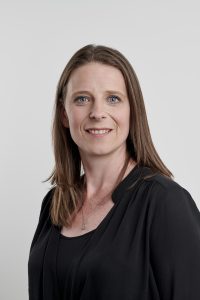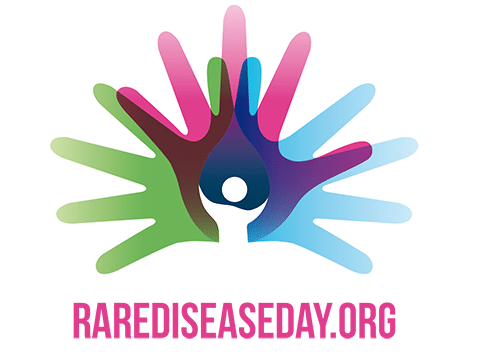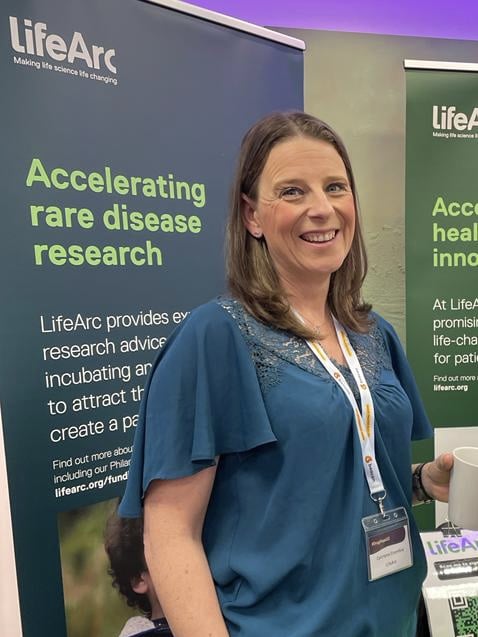Translational research can turn promising science into new treatments for those with rare diseases. It’s why we need more of it, says Dr Catriona Crombie, Head of our Philanthropic Fund in a conversation with Health Awareness.
 The value of translational research in the field of rare disease
The value of translational research in the field of rare disease
This is a hugely exciting time to be working in the area of rare diseases. One reason is the completion of the UK Government’s 100,000 Genomes Project in 2018. This was established to sequence 100,000 genomes from around 85,000 NHS patients affected by rare diseases or cancer, with the hope of increasing understanding of genetic variants and improving diagnosis and treatment.
“Breakthroughs like this give the medical community an opportunity to start to work on treatments for diseases that had previously been considered untreatable,” said Dr Crombie.
De-risking projects and incentivising investors
Funds for valuable research in rare diseases are scarce, largely because of the scale of the challenge. There are around 7,000 rare diseases and, at the current rate of development, it would take around 800 years to develop treatments for all of them. Developing a drug for each rare disease would provide only a small market to generate returns on investment, because of the relatively low number of patients affected per disease.
“A different sort of model is needed to encourage drug development.”
This is where support for translational research comes in: bridging the gap between ‘bench’ and ‘bedside’ (aka, the lab and the patient). Financing is not the only stumbling block in rare disease treatment development. The complexity of the work requires close collaboration from a number of partners.
“It would be highly unusual for one party to have the necessary skills to take a basic science concept all the way through to a treatment,” explains Dr Crombie. “Translational research normally requires a number of different skillsets. It needs the biologist who understands science, the clinician who understands patient need, and experts who understand the chemistry of the molecules under development as well as the experts to navigate the regulatory environment- the list is extensive. It ’s a multidisciplinary space, which is why we work with industry, academia and research organisations.”
The need for translational research
But while things are changing in the field of rare diseases, Dr Crombie stresses that this is no time for complacency.
“There are licensed drugs for only around 500 rare diseases. This means that the vast number of rare disease patients receive no treatment at all.”
“We have to do more translational research to move more potential drugs along the development pathway and ultimately provide treatments to people with challenging conditions. Otherwise some patients with rare diseases will die. It’s that real – and that simple.”
Support for rare disease research
LifeArc is in a unique position to support rare disease research. As a medical research charity we have revenues from charitable donations and royalty income from projects such as our work on the cancer immunotherapy Keytruda (pembrolizumab). The money we have earned from Keytruda alone means we can fund rare disease research directly.
GOSH Charity
In 2018 we joined with Great Ormond Street Hospital Children’s Charity (GOSH Charity) to support a joint funding scheme focused on helping GOSH researchers drive their discoveries towards new tests and treatments for childhood rare diseases.
“Researchers based at GOSH and the UCL Great Ormond Street Institute of Child Health generate potentially life-changing ideas through lab-based science,” says Dr Crombie.
“The hospital also has world-leading clinical expertise and, of course, a unique patient group. Through this collaboration we can bring our additional expertise in translational research, to ensure more discoveries are ready for the next stage, bringing treatments and cures one step closer to the children that need them.”
Action Medical Research
In January 2020, we joined children’s charity Action Medical Research to fund research projects that could lead to new interventions – therapeutics, diagnostics and devices. £1m of funding will be available for translational research projects from across the UK focused on children’s rare diseases. We are currently seeking applications (up to 3rd March 2020) from scientists who require additional funding to progress promising research projects.
Saturday 29th is #RareDiseaseDay Help us help those affected by these awful conditions by spreading the work, & maybe even doing some fundraising for @actionmedres #MondayMotivation https://t.co/eXt1seBo3u pic.twitter.com/EawAs6cGLT
— Action West & Central (@Action_West) February 24, 2020
Aplastic Anaemia Trust
And in 2019, we began a collaboration with the Aplastic Anaemia Trust (AAT) , jointly awarding a £1.15m research grant to King’s College London and King’s College Hospital for research into the potential of a novel type of “personalised cellular therapy” to reverse the ultra-rare condition aplastic anaemia (AA). The results of this research could give new hope to people living with a severe, life-limiting form of this condition.
We support the translation of promising science for #RareDiseases We’ve partnered with @AplasticAnaemia to award a £1.15m research grant to investigate a novel type of “personalised cellular therapy” for AA, an ultra-rare condition. Read more here: https://t.co/fYC4Ozlf0o pic.twitter.com/xh9b0O0fnW
— LifeArc (@lifearc1) February 27, 2020
If you are interested in applying for a grant to research a rare disease, please read our criteria for funding and get in touch.




